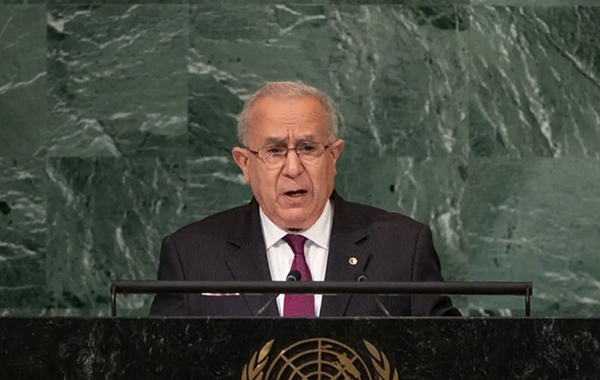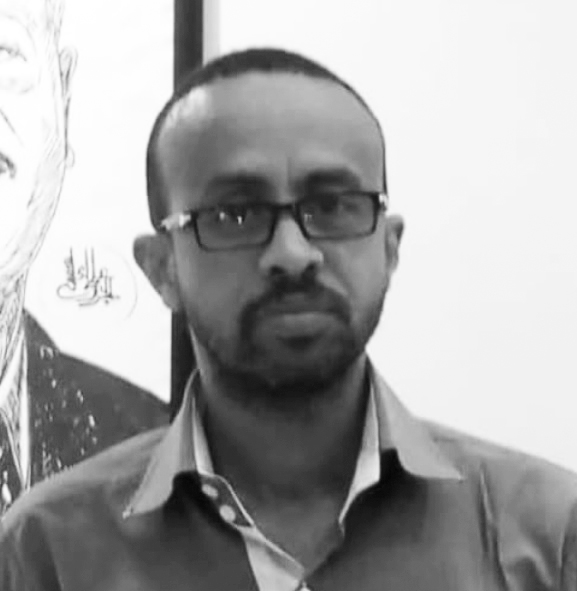Updated: 0 December 0000 00:00:00

Ramtane Lamamra, the UNs Lagging Envoy in the Sudan Crisis
Khaled Massa
With a kind of "laziness" in political analysis, most observers of the Sudanese situation have interpreted the majoritys vote in the UN Security Council session discussing the Sudanese governments request to end the mandate of the United Nations Integrated Transition Assistance Mission in Sudan (UNITAMS) in favor of not renewing the UN missions mandate, and transferring its tasks to specialized UN agencies, as a response to the storm of criticism led by the Sudanese Foreign Ministry against the head of the mission, Volker Perthes, and the mission itself. Accepting this was only the first step in changing the nature of the international organizations tasks mandated by the "Chapter VI" with a political nature to military intervention in Sudan, according to the authorization granted by the "Chapter VII."
The "laziness" was in the international organization itself, which chose to conserve its effort and convinced itself that the performance of the UNITAMS mission in supporting the transition in Sudan was insufficient to defend it in the voting session. The transition for which the comprehensive mission was formed became virtually non-existent after the decisions of October 25. Statements of condemnation and censure were the pinnacle of the tools that the mission could provide to restore the path of civil transformation. It chose a middle path that preserves the international organizations face, avoiding the thorny issues set by the Sudanese government. The Secretary-General appointed the Algerian diplomat Ramtane Lamamra last November as his personal envoy to Sudan.
In contrast, the Sudanese government appointed Lieutenant General Ibrahim Jabir, a member of the Sovereignty Council, as the head of the committee responsible for dealing with the United Nations, intending to indicate that it wants to detail the tasks of the international organization according to its preferences and that it desires its envoy to walk on the "dough" of the Sudanese crisis without being spoiled by decisions or sanctions.
With little time and sluggish steps, the Algerian Ramtane Lamamra started his work as the Secretary-Generals personal envoy with a visit to Egypt, a neighbor with significant influence on the Sudanese issue. During his meetings, he sensed the officials views on the Sudanese crisis. He also met with Sudanese components and individuals for the same purpose.
Despite the ambiguity surrounding the assessments and statements of the Deputy Chairman of the Transitional Council, Malik Aqar, we cannot ignore the description of the visit of the UN Secretary-Generals envoy, Ramtane Lamamra, and his meetings in Port Sudan as "exploratory," indicating that the Sudanese people will endure the suffering in anticipation of a solution to their ongoing tragedy for almost a year, a crisis that the comprehensive mission spent two years in the midst of and emerged without discovering a remedy for its wounds.
Even the most optimistic would not expect the envoy to comprehend the complexity in post-war Sudan, especially as he does not possess a magic wand to formulate the solution to the political, social, and intense ethnic polarization in Sudan, which places the primary obstacles in front of implementing his mission for which he was appointed.
The Sudanese mindset has not yet agreed on a universally accepted definition of the Sudanese crisis. In a statement by the Ministry of Foreign Affairs, it is considered an internal problem to be solved internally, and there is sensitivity to UN intervention. It is a crisis with international and regional ties, according to the Sovereignty Council. This complexity will not make it easy for the envoy, who must understand that the office entrusted to him threw him into the midst of a complex Sudanese crisis. He was occupied with the more critical complications sparked by the Gaza war and the ignition of the Red Sea security file.
Lamamra came to his mission, and we do not believe that the United States personal position towards him is irrelevant, given its previous objection to his appointment to the same mission in Libya, something that prompted him to apologize for the assignment at the time. The United States is currently the main player in the market of initiatives presented to solve the Sudanese crisis through the Jeddah platform.
Regionally, the envoy will also need extra time to understand the intersections of the regions countries and their organizations (IGAD/African Union) and their impacts on the solution paper. Unless the idea from the outset for the international organization was to disclaim responsibility for a crisis suffered by a member state in its General Assembly and admit its failure to protect a people still paying a high price for the war and its accompanying violations. If Lamamra turned his attention to the records of the tragedies of displacement and refuge for Sudanese, and the documented violations since April 15, he would surely realize that there is no need for him to explore, compliment, or engage in public relations. Instead, there is a need for quick action to stop the Sudanese bloodshed immediately without UN hesitation.


